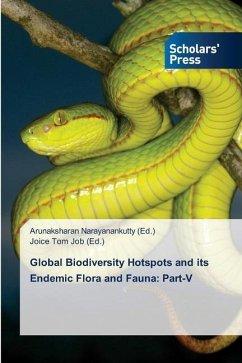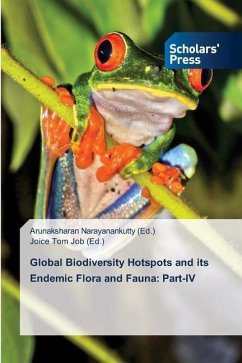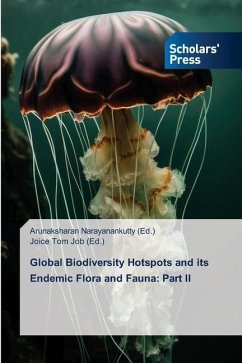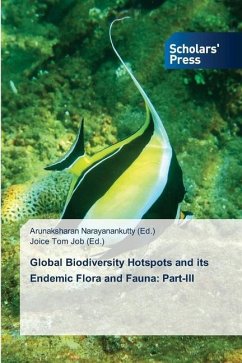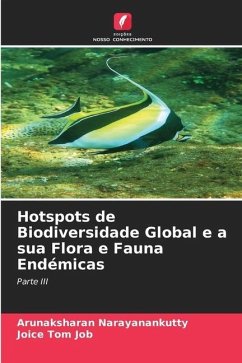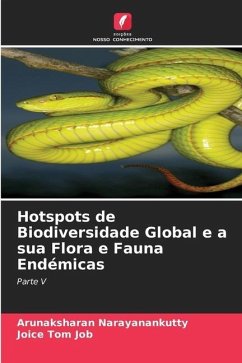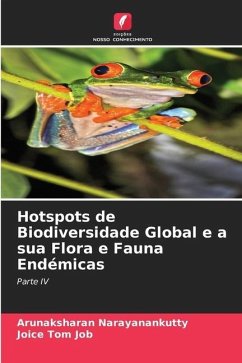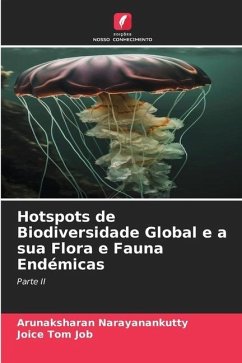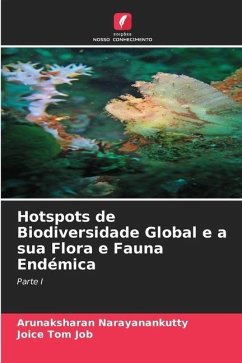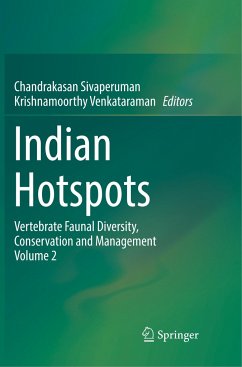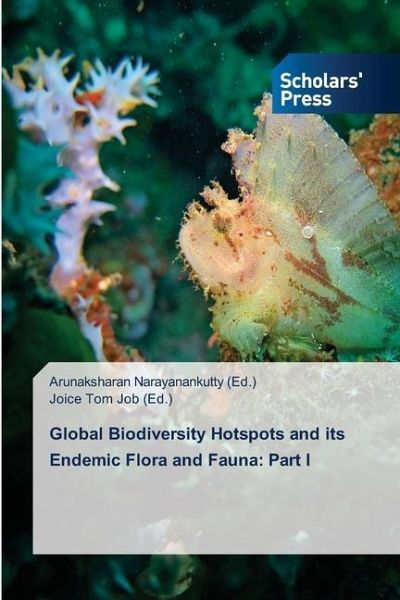
Global Biodiversity Hotspots and its Endemic Flora and Fauna: Part I
Versandkostenfrei!
Versandfertig in 6-10 Tagen
34,99 €
inkl. MwSt.

PAYBACK Punkte
17 °P sammeln!
Biodiversity hotspots are regions of the world that are of immense ecological significance due to their high levels of biodiversity and endemism. They are identified based on two main criteria, including high species richness and the presence of unique and endemic species. These hotspots are critically important for the survival of numerous plant and animal species, as well as for the provision of ecosystem services that support human livelihoods. Despite their ecological importance, biodiversity hotspots are increasingly threatened by human activities such as habitat destruction, climate chan...
Biodiversity hotspots are regions of the world that are of immense ecological significance due to their high levels of biodiversity and endemism. They are identified based on two main criteria, including high species richness and the presence of unique and endemic species. These hotspots are critically important for the survival of numerous plant and animal species, as well as for the provision of ecosystem services that support human livelihoods. Despite their ecological importance, biodiversity hotspots are increasingly threatened by human activities such as habitat destruction, climate change, pollution and overexploitation of natural resources. The conservation of biodiversity hotspots is therefore a critical priority and requires significant efforts and resources from both national and international organizations as well as from local communities. In recent years, a variety of conservation measures have been implemented, including the creation of protected areas, the restoration of degraded habitats and the promotion of sustainable land use practices. In the Part I, we discussed about seven biodiversity hotspots.



